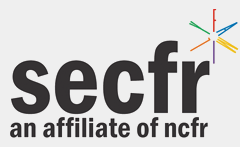Sex Trafficking Survivors’ Perspectives on Relational Resources
Proposal Focus
Research
Presentation Type
Poster
Abstract
Many sex trafficking survivors report problems in their interpersonal relationships, yet few studies have investigated the nuance of these important relational bonds. This phenomenological study began addressing this gap by exploring survivors’ perceptions of the quality and utility of their relationships with family members, peers, and service providers, specifically in the context of transitioning out of sex trafficking. Semi-structured qualitative interviews were conducted with six survivors in a residential recovery program. Analyses yielded three themes that represented distinct relational domains (1. non-professional, 2. professional, and 3. spirituality) and sub-codes which appeared to highlight nuance within each domain in the sense that some relationships were simultaneously helpful and challenging to negotiate. This poster will provide an overview of themes and codes, as well as a description of the practical significance of the results. Findings help extend existing literature and may inform potential modifications to resources provided by recovery programs.
Keywords
Sex trafficking, Interpersonal relationships, Qualitative
Location
Cornerstone Ballroom Side B
Start Date
12-4-2019 10:00 AM
End Date
12-4-2019 11:00 AM
Sex Trafficking Survivors’ Perspectives on Relational Resources
Cornerstone Ballroom Side B
Many sex trafficking survivors report problems in their interpersonal relationships, yet few studies have investigated the nuance of these important relational bonds. This phenomenological study began addressing this gap by exploring survivors’ perceptions of the quality and utility of their relationships with family members, peers, and service providers, specifically in the context of transitioning out of sex trafficking. Semi-structured qualitative interviews were conducted with six survivors in a residential recovery program. Analyses yielded three themes that represented distinct relational domains (1. non-professional, 2. professional, and 3. spirituality) and sub-codes which appeared to highlight nuance within each domain in the sense that some relationships were simultaneously helpful and challenging to negotiate. This poster will provide an overview of themes and codes, as well as a description of the practical significance of the results. Findings help extend existing literature and may inform potential modifications to resources provided by recovery programs.
![Southeastern Council on Family Relations Conference [2018-2020]](/assets/md5images/a0d3661d5139dc9b769a57be6f085156.png)

